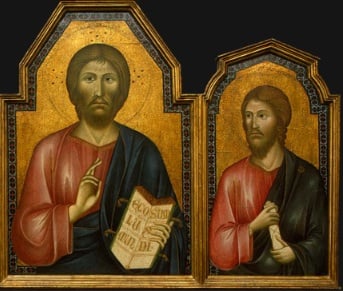 We are looking at the last passage in James, James 5:13-20.
We are looking at the last passage in James, James 5:13-20.
James urges the messianic community to summon elders to pray over the sick:
Is anyone among you sick? Let them call the elders of the church to
pray over them and anoint them with oil in the name of the Lord.
The word “sick” means just about what you and I think it does: sick. Probably sick enough though to stand out from ordinary sickness that humans both expect and typically recover from; in fact, the passage goes on to use words that may well indicate the person is seriously sick — perhaps near death. The elders, which shows there is some kind of leadership over messianists in the communities to which James writes, are to pray and anoint with oil.
It was also customary in the ancient world to
anoint someone with oil. Such an act could be more medicinal, procedural and connected to the natural
healing process, as in Isaiah 1:6 when he speaks of wounds: “they have not been
drained, or bound up, or softened with oil.” The same is found in the parable
of Good Samaritan: “He went to him and bandaged his
wounds, having poured oil and wine on them. Then he put him on his own animal,
brought him to an inn, and took care of him” (Luke 10:34). A text in Josephus about Herod makes this most clear:
Yet,
struggling as was with numerous sufferings, he clung to life, hoped for
recovery, and devised one remedy after another. Thus he crossed the Jordan to
take warm baths as Callirrhoe … . There, the physicians deciding to raise the
temperature of his whole body with hot oil, he was lowered into a bath full of
that liquid, whereupon he fainted and turned up his eyes as though he were
dead. His attendants raising an uproar, their cries brought him to himself … (War 1.657-658).
But, anointing with oil was also used for
healing supernaturally through the power and grace made available in Christ and
through the Spirit. Thus, Mark
6:13: “They cast out many demons, and anointed with
oil many who were sick and cured them.” Forks appear in the road once we leave
the obvious and general of this discussion. James’ words could involve the oil
being symbolic of consecration of the person to God (e.g., Exod 28:41; Acts 4:27;
10:38; 2 Cor 1:21) or the oil could be seen sacramentally, something that
mediates God’s healing grace. This is clearly developed in the history of the
Church (in the Euchelaion), which led
to such Roman Catholic practices as “extreme unction” and the “anointing of the
sick.”

